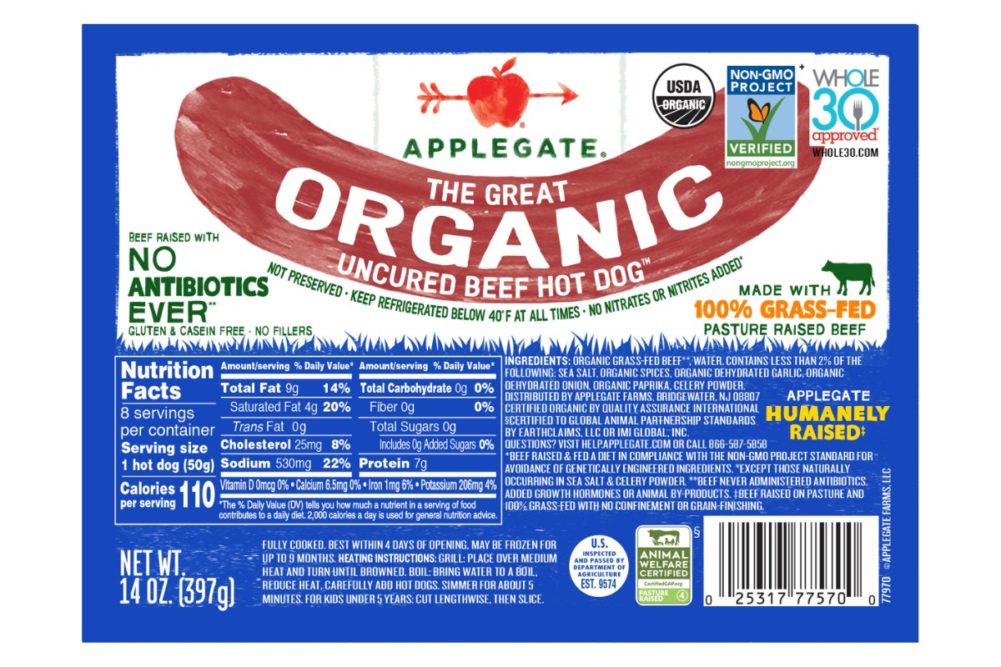When you eat meat, choosing organic is especially important, because meat production can have cascading effects on human health, animal welfare and the environment, according to a new report that Applegate Farms, Bridgewater, NJ, conducted with the Organic Center, Washington, DC, a non-profit research organization that examines the science of organic food and farming. The report synthesizes scientific literature showing the differences in the way organic meat is produced, and why those differences are important for the health of the animals, the health and safety of consumers, the health of the soil and the impacts on climate change.
All meat is not created equal, according to the report. That’s because the diet of grazing animals, especially the amount of grass, can change the type of fat in the meat. Organic ruminant meat, such as beef, lamb and goat, may contain more of the good omega-3 fatty acids, less cholesterol and more antioxidants than non-organic ruminants, because organic regulations require the animals to graze on certified organic pasture throughout the entire grazing season for the geographic region.
The report presents the different standards for organic meat production and how that may improve the nutritional value of organic meat while simultaneously reducing exposure to antibiotics, growth hormones and pesticides. The report also shows how organic meat production has fewer negative effects on the off-farm environment and can help reduce impacts on climate change by storing more carbon in pasture, which offsets greenhouse gas emissions.
Applegate actively communicates this information to consumers. The company’s organic hot dogs, for example, are trademarked as “The Cleaner Wiener.” The company not only touts the positives of organic meat, it flags that the hot dogs are made with only four simple ingredients: grass-fed beef, salt, water and spices.
You can view the report HERE.


